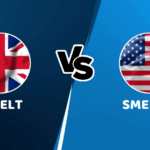Language is fascinating and always changing. One interesting thing in English is deciding between “learnt” or “learned.” Even though they both mean the same—picking up knowledge or skills—where you are in the English-speaking world affects which one you use. This article will explain “learnt” and “learned,” looking at where they come from, regional differences, and how they’re used.
What’s the Historical Background?
To get why “learnt” and “learned” coexist, we need to go back to where they came from. Both words share an Old English ancestor, “leornian,” which means to gain knowledge. But as time passed, their spellings and pronunciations went separate ways due to historical and geographical reasons.
UK vs. US English
The big difference between “learnt” and “learned” is where they’re considered correct.
British English:
Learnt: You’ll hear this in the UK. It’s the past tense and past participle of “learn,” and people use it without a second thought.
Example: She learnt to play the piano when she was little.
American English:
Learned: Over in the US, this is the go-to past tense and past participle. It fits the pattern of regularizing verb forms that’s common in American English.
Example: He learned about ecosystems in school.
Pro Tip: If you’re in the UK, use “learnt”; if you’re in the US, use “learned.” It’s just a regional thing, no big deal.
When to Use Learnt or Learned?
Choosing between “learnt” and “learned” isn’t random. It depends on the situation. Here’s the lowdown:
Simple Past Tense:
Learnt: Used in British English to talk about something that happened and finished in the past.
- Example: Yesterday, she learnt how to fix a leaky faucet.
Learned: American English uses “learned” for the same idea.
- Example: Last week, he learned a new recipe.
Past Participle:
Learnt: In the UK, “learnt” takes on the past participle role in perfect tenses.
- Example: She has learnt the art of negotiation.
Learned: In the US, “learned” does the job in perfect tenses.
- Example: He has learned the importance of time management.
Here is the table for better understanding:
| Tense/Form | British English | American English |
|---|---|---|
| Simple Past Tense | Learnt | Learned |
| Past Participle (Perfect) | Learnt | Learned |
What’s the Difference Between “Learnt” and “Learned” in English?
The difference lies in regional preferences. British English favors “learnt” as the past tense and past participle of “learn,” while American English opts for “learned.” So, it’s simply a matter of location – UK uses “learnt,” and the US uses “learned.”
Conclusion:
In conclusion, the “learnt” vs. “learned” thing in English is about where you are and how people in that place prefer to say it. In the UK, they like “learnt” for past tense and past participle, and in the US, they go with “learned.” It’s like a language neighborhood rule – use “learnt” if you’re in the UK, and “learned” if you’re in the US.


